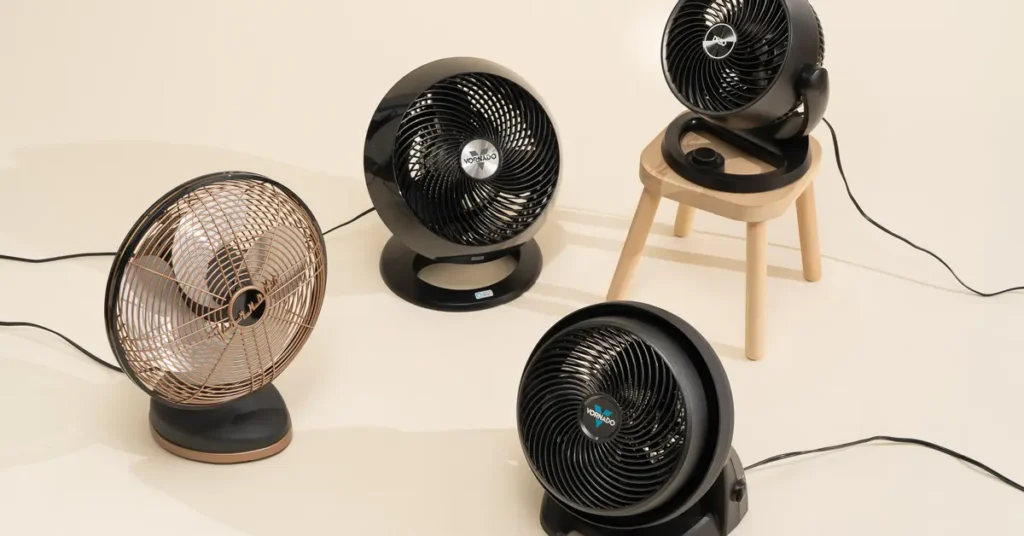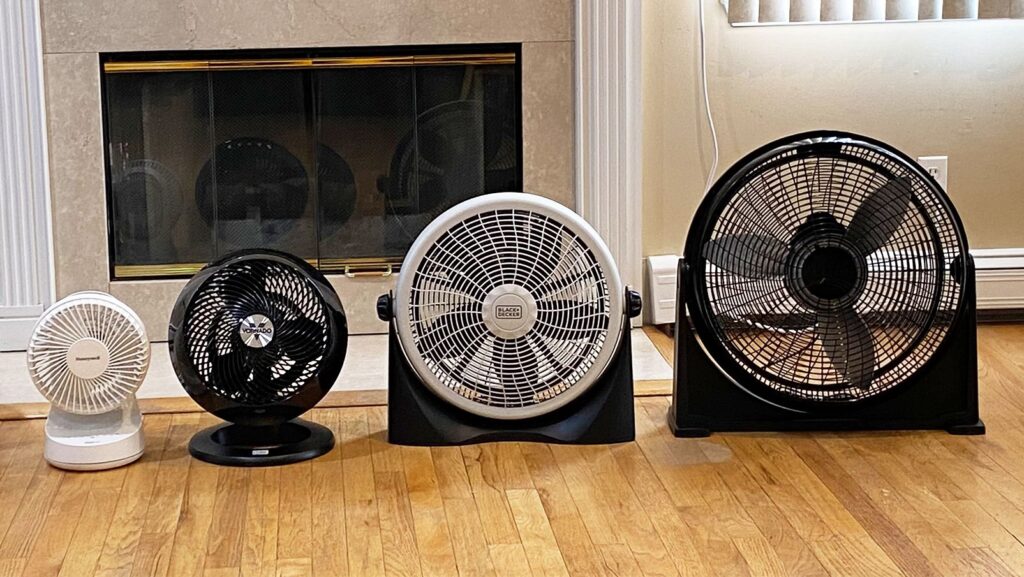The choice between metal and plastic fans hinges on specific application needs. Metal fans are durable, heat-resistant, and stable, making them ideal for industrial settings with harsh conditions. They also have a longer lifespan. However, they are heavier and costlier. Plastic fans, on the other hand, are cost-effective, lightweight, and corrosion-resistant. They excel in situations where electrical insulation is crucial.
Despite being less durable than metal, plastic fans are advantageous in environments with corrosive substances. Ultimately, the decision should be based on factors such as intended use, environmental conditions, cost considerations, and specific application requirements, with some applications benefitting from a combination of both materials.
How do Metal Fans Excel in Durability, Stability, and Longevity?

It seems like you might be referring to the durability, stability, and longevity of metal music fans rather than physical fans. If that’s the case, here are some aspects that contribute to the enduring nature of metal fans:
Passion and Devotion
Metal fans are often deeply passionate and devoted to the genre. Their love for the music goes beyond trends, and they remain committed to the genre for the long term.
Diverse Subgenres
Metal is a diverse genre with numerous subgenres, from classic heavy metal to death metal and black metal. This diversity allows fans to find new and interesting music within the broader metal umbrella, preventing staleness.
Community and Camaraderie
Metal has a strong sense of community. Fans often form tight-knit communities where they share a common love for the music. This sense of camaraderie contributes to the longevity of the metal scene.
Timelessness of Classics
Metal has produced many classic albums that stand the test of time. Fans continue to enjoy and discover these timeless works, ensuring the genre’s stability and longevity.
Live Performances
Metal is known for its energetic and powerful live performances. The experience of attending metal concerts creates lasting memories and enhances the overall appeal of the genre.
Global Appeal
Metal has a global fanbase, transcending cultural and geographical boundaries. This broad appeal contributes to the stability and longevity of the genre, as it continues to attract new fans worldwide.
Resilience to Trends
Metal often exists outside mainstream music trends. This resistance to being influenced by passing fads contributes to the durability of the genre, as it remains authentic and true to its roots.
Innovation and Evolution
While metal has its classic elements, it also allows for innovation and evolution. Bands continue to push boundaries and experiment with new sounds, ensuring that the genre remains relevant and dynamic.
Iconic Symbols and Imagery
Metal is often associated with iconic symbols and imagery, contributing to a strong visual identity. This visual appeal adds an extra layer to the overall experience for fans and helps maintain their interest over time.
What are the Advantages of Plastic Fans in Cost, Weight, and others?
Plastic fans offer several advantages, particularly in terms of cost, weight, and other factors. Here are some key advantages:
Cost-Effectiveness
Plastic fans are generally more cost-effective to manufacture compared to metal fans. The materials used in plastic fan production are often less expensive, and the manufacturing processes can be more streamlined, contributing to lower overall costs.
Lightweight
Plastic fans are lighter than their metal counterparts. This characteristic is beneficial in various applications, especially in industries where weight is a critical factor, such as automotive and aerospace. The reduced weight can also make installation and handling easier.
Corrosion Resistance
Unlike metal fans, plastic fans are not susceptible to corrosion. This makes them particularly suitable for environments where exposure to moisture or corrosive substances is a concern. Plastic fans can withstand humid conditions and exposure to certain chemicals without degrading.
Electrical Insulation
Plastic is an electrical insulator, which means plastic fans do not conduct electricity. In situations where electrical conductivity is a concern, such as in electronic equipment or near electrical components, plastic fans are a safer choice.
Design Flexibility
Plastic fans offer greater design flexibility compared to metal fans. Manufacturers can mold plastic into various shapes and sizes, allowing for more intricate and customized fan designs. This flexibility can be advantageous in applications where specific design requirements need to be met.
Acoustic Properties
Plastic fans can be designed to dampen vibrations and reduce noise levels, making them quieter than some metal fans. This can be important in applications where noise reduction is a priority, such as in HVAC systems or household appliances.
Energy Efficiency
Plastic fans can be designed to have efficient aerodynamics, contributing to energy savings. The lightweight nature of plastic also reduces the energy required to rotate the fan blades, making plastic fans potentially more energy-efficient than heavier metal alternatives.
Recyclability
Many types of plastics used in fan manufacturing are recyclable. This aligns with environmental considerations and sustainability goals, making plastic fans a potentially more eco-friendly option when managed responsibly.
Resistance to Certain Chemicals
Depending on the type of plastic used, plastic fans can exhibit resistance to specific chemicals. This can be an advantage in industrial settings where exposure to chemical agents is a concern.
What Factors Should I Consider When Choosing Between Metal and Plastic Fans?

Choosing between metal and plastic fans depends on various factors related to your specific application and requirements. Firstly, consider the environmental conditions; if your application involves high temperatures, metal fans may be more suitable, as they generally have a higher tolerance for heat. On the other hand, in corrosive environments where exposure to moisture, chemicals, or salt is a concern, plastic fans may be preferable due to their corrosion resistance. Weight requirements also play a significant role; if weight is a critical factor, plastic fans are generally lighter than metal fans, making them a suitable choice.
Additionally, cost considerations are vital; plastic fans are often more cost-effective than metal fans, making them a preferred option for cost-conscious applications. The specifics of your application, such as the need to minimize vibration and noise or the requirement for electrical insulation, will also influence your choice.
Durability, mechanical strength, and expected lifespan are crucial factors, with metal fans being more suitable for applications with high mechanical stresses and longer lifespan requirements. The chemical resistance of the materials is essential if the fan will be exposed to chemicals. Design flexibility, energy efficiency, and adherence to regulatory standards are other key considerations.
Lastly, for those prioritizing environmental impact, the recyclability and sustainability of the materials used in the fan should be taken into account. By carefully evaluating these factors, you can make an informed decision that aligns with your specific needs and priorities.
FAQ’s
Which fan blade gives more air?
The design and angle of the fan blades play a crucial role in determining airflow. Generally, larger and well-designed blades can move more air.
Are metal blade fans louder?
Metal blade fans can produce more noise compared to some plastic fans due to vibrations and resonance. However, noise levels depend on the fan design and motor quality.
Which fan is the strongest?
The strength of a fan can depend on various factors, including motor power, blade design, and build quality. Heavy-duty metal fans are often considered stronger for industrial applications.
What type of fan blade is best?
The best type of fan blade depends on the specific application. Metal blades may be preferred for durability, while well-designed plastic blades can offer efficiency and reduced noise.
What fan blade is the quietest?
Generally, fans with well-designed, aerodynamic blades, and quiet motors contribute to lower noise levels. Some plastic fans with noise-reducing features may be quieter than metal fans.
Final Words
When deciding between metal and plastic fans, it’s essential to consider your specific needs. Metal fans stand out for their durability, stability, and longevity, making them ideal for tough industrial settings. On the other hand, plastic fans are cost-effective, lightweight, and resistant to corrosion, making them suitable for various applications.
Ultimately, the choice depends on your specific requirements, the environment, and your budget. A balanced decision considering these factors will help you find the fan that best suits your needs.

